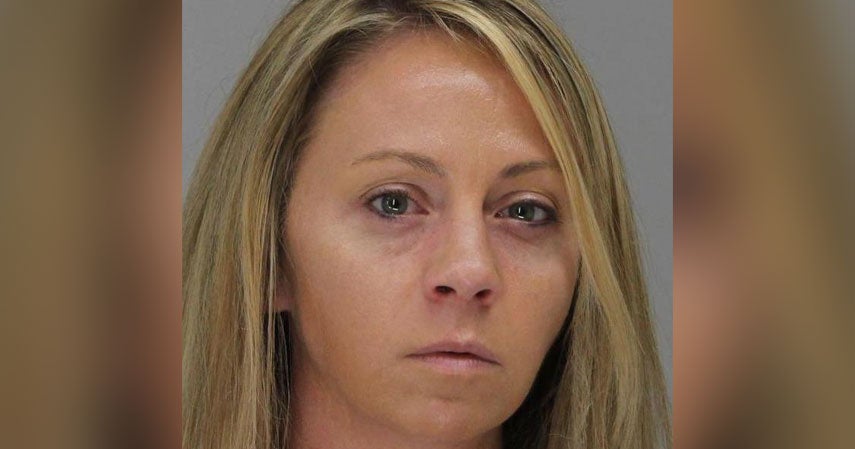Letters In Dallas Man's Secret Dresser Drawer Tell Horrific Story About German Family During WWII
DALLAS (CBSDFW.COM) - A German family's story would have been lost forever had it not been for a Dallas man who discovered letters in a hidden compartment of an old dresser.
Twenty years ago, Tim Mallad of Dallas bought a dresser at an estate sale at a retirement community in Detroit.
"It was a consolation prize," he said. "I had bought another desk and someone else took it."
The salesman offered him another desk - an old teak dresser with a broken front.
"He wouldn't give me my money back so I took that one," Mallad said.
Unbeknownst to him, that $25 desk contained something more valuable that he could ever imagine.
Hidden behind the mail slots there was a secret compartment.
At first, Mallard was excited.
"I had huge expectations at the moment of what was going to be inside that drawer," he said. He was hoping for money or stocks but what he found inside was piece of history.
A PIECE OF HISTORY
The compartment had a British passport, a green wedding program with the picture of the bride and groom on it from 1930.
There was also a leather portfolio containing hand-written letters in German. The dresser belonged to Helen Sebba.
She lived in the Detroit retirement community where Tim Mallad worked. After she passed away, her family sold all the furniture in an estate sale. The family had removed all the other contents from the desk. But they had no idea about the secret compartment.
Mallad tried to get the letters translated but he found that to be very tough. The letters were written in cursive. He wasn't able to find a translator who could give him a full picture.
Finally he found a woman who agreed to translate them for him. "She came back in tears. And just said 'horrible, awful, terrible'," he said. Too painful to even describe she told him.
In 2014, he got the letters fully translated from an expert.
The letters were written by a woman named, Olga. She wrote about Willie Wiess - the brother of Helen Sebba.
Weiss was a doctor living with his wife Dora and their daughter Ursala or Ulla in a small northeastern town of Neustrelitz, Germany.
Olga, it seems, had taken refuge with the family during the war.
THE PAINFUL HISTORY
In the letters dated 1945, Olga detailed their plight living in Germany.
As Hitler's army was losing the war in the west, Russian soldiers were entering Germany from the east.
And then in the letter, she wrote about the day the Russians came to the Weiss' home. The family, knowing what was happening to young women in the town, decided to hide young Ulla in the cellar. They wrapped her in burlap and sat on her.
"Russians found them in the cellar, and they took his wife Dora, Mrs. Weiss, and they raped her." Mallad said.
Word by word on the now 75-year-old paper, the secrets held in this drawer came spilling out. The letters reveal, the Russians found out about Ulla. They came for her and took her away.
The letters spoke of Ulla rape.
Mallad says what followed was unimaginable
"The little girl comes back and says 'Vati, (father in German) Vati I want to die. Please kill me.' He says...'are you certain?' She says 'Yes Daddy, I want to die. I don't want them to come back for me'," Mallad said.
As written by Olga, the final letter talks about how Willie Weiss then gave his daughter and wife potassium cyanide.
The witness wrote that Willie wanted the three of them to die together.
"In letters they say that he held her, then they talk about every intimate words the two exchanged, he was with her until she was gone," Mallad said.
IN SEARCH OF THE FAMILY
Mallad felt these deeply personal letters needed to be shared with the family of Helen Sebba and Willie Weiss.
Using internet research and clues from the letters, Mallad found Frank Pringham in Atlanta. He is the grandson of Helen Sebba, the woman who owned the desk and the sister of Willie Weiss.
When Mallad reached out, Frank Pringham thought it was a scam.
"I was very hesitant in replying to Tim," Pringham said. "But the more he talked about what was in the letters the more legitimate he became."
He went into the basement where he kept some of the boxes he brought from his grandmother's house. He found the photos of his grandmother with the desk behind her. He also found envelopes the letters came in. That helped the men find addresses of where the family lived.
Frank's grandmother Helen had not told her family about the family tragedy. "I knew nothing about that side of the family, only that she had a brother," Pringham said.
"I didnt know what his name was where they lived where they were living if they were still alive, until these letters were brought out of the drawer in the desk."
They've become very close since they first met last year." I kiddingly call him brother from another grandmother," he said.
The contents of the letter weighs heavy on Pringham's heart.
"I still tear up when I read the letters or someone talks about them. it's quite a moving experience," he said.
The two plan to visit Germany this fall.





